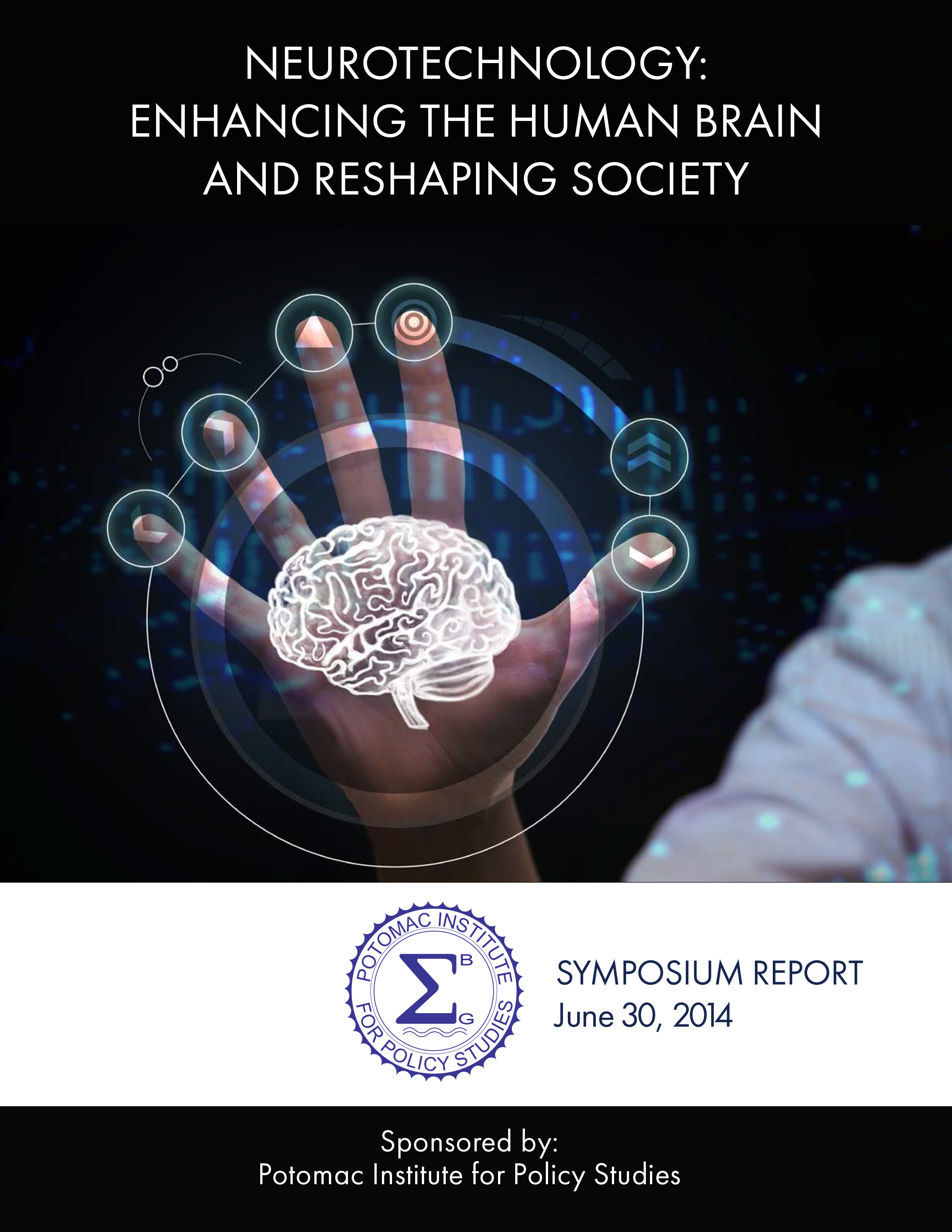 The Potomac Institute for Policy Studies held a seminar on “Neurotechnology: Enhancing the Human Brain and Reshaping Society” on June 30th, 2014. The speakers and panelists shared their insights into novel neurotechnologies that can improve our cognitive abilities through biological, chemical, and sensorimotor enhancements. Just as computing technologies brought us into the Digital Age, neuroenhancements will become widespread and transform our society. A collaborative effort between policy-makers, scientists, and the private sector will ensure that neuroenhancement of the individual will result in enrichment of our society as a whole. The human brain is the most powerful tool we know. Therefore, we should do everything we can to understand its capacity, to utilize its worth, and to enhance its value to our species and ourselves.
The Potomac Institute for Policy Studies held a seminar on “Neurotechnology: Enhancing the Human Brain and Reshaping Society” on June 30th, 2014. The speakers and panelists shared their insights into novel neurotechnologies that can improve our cognitive abilities through biological, chemical, and sensorimotor enhancements. Just as computing technologies brought us into the Digital Age, neuroenhancements will become widespread and transform our society. A collaborative effort between policy-makers, scientists, and the private sector will ensure that neuroenhancement of the individual will result in enrichment of our society as a whole. The human brain is the most powerful tool we know. Therefore, we should do everything we can to understand its capacity, to utilize its worth, and to enhance its value to our species and ourselves.
In his opening remarks, Mike Swetnam called for greater investment in neurotechnology, an endeavor that should match our past investments in nanotechnology and information technology.
In the future, neuro-enhancement will be as widespread as today’s computing technologies. Our society and economy is heavily based on the computerization of information through powerful computer chips. A continued progression into the Digital Age requires further strengthening of the field of neurotechnology.
Dr. Amy Kruse highlighted the role of the private sector in developing new neurotechnology and bringing neuro-enhancements to the everyday consumer. Dr. Kruse believes that the current market is ready for neurotechnology: the commercial world has poured a lot of money into neuroscience. However, we need a rigorous, tested set of technologies and a set of trusted providers. The government should encourage and provide the necessary research and funding to develop the applied neurotechnologies that fit into this framework.
Next, Dr. Jonathan Moreno pointed to the immense growth of excitement surrounding neuroscience over the past few years and its potential to affect society. Dr. Moreno detailed the rich history of enhancement in neuroscience, including the CIA interest in the “Mind Race,” investigations into oxytocin, and the development of transcranial magnetic stimulation. Dr. Moreno’s numerous examples helped to illustrate the many ways in which neuroscience has already and will continue to enhance our lives. In addition, as Dr. Moreno is a bioethics professor at the University of Pennsylvania, he explained several of the ethical dilemmas that may arise from these new technologies including the issue of cognitive liberty and reversibility.
The final speaker, Dr. Gerold Yonas, addressed the ability of neuro-enhancements to revolutionize treatment and improve lives. Dr. Yonas focused on how electromagnetic stimulation can enhance and restore brain function. He described how increasing slow wave sleep time or using stimulation to induce specific brain activity would improve cerebral blood flow and the ability of the brain to respond to stress. He also discussed the applications of transcranial stimulation (in both direct current and alternating current forms) and how research and proper investment can improve the safety and function of these neurological tools. Lastly, Dr. Yonas discussed the potential for neuro-systems engineering to transform our interactions and roles in society.
The panelists convened to discuss neurotechnology together and to take questions from the audience. The discussion covered health topics including the value of sleep and how to improve it, treatments for migraines, and curing Alzheimer’s disease. The discussion hinged on the role of business and government regulations and how to ensure that neuro-enhancements are rigorously tested and validated (how do we ensure that these technologies are sold at CVS and not GNC?). The conversation also included discussion of how scientific progress can be hindered by government regulation and control. Neuroscience has the potential to advance faster than the government regulations that limit it, a trend that is seen with the internet today.
Dr. Jennifer Buss highlighted how policy solutions for neuro-enhancement can address the field of neuroscience as a whole. She called for expanding the BRAIN Initiative into a National Neurotechnology Initiative. The coordinating and oversight power of the initiative would be placed within the National Science Foundation. There is great potential for neurotechnology, and increased government funding, inclusion of industry, and developed research focuses will make this potential a reality. Neuro-enhancements will provide new means of communication, learning, machine control, and medical treatment, all while spurring new industries and job creation.
